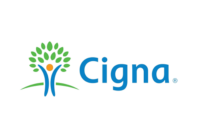What We Treat
Obsessive Compulsive Disorder
Support for Obsessive-Compulsive Disorder
Obsessive-compulsive disorder (OCD) is a mental health disorder that affects people of all ages and walks of life. While there is no one-size-fits-all treatment for OCD, there are a variety of effective evidence-based treatments available. The most common treatment approach for OCD is a combination of medication and cognitive-behavioral therapy (CBT).
Medication is often used to help reduce the severity of OCD symptoms. A class of drugs called selective serotonin reuptake inhibitors (SSRIs) is typically prescribed for OCD. These medications work by increasing levels of serotonin in the brain, which can help to improve mood and relieve anxiety.
CBT is a type of therapy that helps people to change their thinking patterns and behaviors. CBT for OCD typically involves exposure and response prevention (ERP), which is a treatment approach that involves gradually exposing oneself to triggering situations while simultaneously learning to resist the urge to engage in compulsive behaviors.
OCD can be a difficult disorder to live with, but treatment can help! If you or someone you know is struggling with OCD, talk to a mental health professional about treatment options.
What Is OCD?
Obsessive-compulsive disorder (OCD) is an anxiety disorder in which people have unwanted and repeated thoughts, feelings, images, and sensations (obsessions) and engage in behaviors or mental acts in response to these obsessions (compulsions).
People with OCD may be troubled by obsessions, such as a fear of germs or of being harmed. They may feel compelled to wash their hands over and over again, or they may check the locks on doors obsessively. These compulsions are time-consuming and interfere with daily life.
What Are the Signs and Symptoms of OCD?
OCD can manifest in many ways, and no two people experience it exactly the same way. However, there are some common obsessions and compulsions that people with OCD may share.
Common obsession include:
- Fear of dirt or contamination
- Excessive worry about household cleaners not being effective
- Intrusive thoughts about accidentally harming others
- Persistent doubts about whether or not you have locked the door or turned off the stove
- Intrusive sexual or violent thoughts
- Excessive hand washing or bathing
- Checking doors, locks, or appliances to make sure they are turned off
- Counting, tapping or repeating certain words or phrases
- Arranging objects in a certain order or symmetry
- Needing to ask for reassurance from others
- Orderliness and symmetry (a need for things to be in a certain order or symmetry)
If you think you may have OCD, it is important to seek treatment from a mental health professional. OCD can be a very debilitating disorder, but there are effective treatments available.
How OCD is Treated
Cognitive Behavioral Therapy (CBT)
Cognitive behavioral therapy (CBT) is one of the most common and effective treatment options for OCD. CBT can help people with OCD to identify and challenge their obsessive thoughts, and to learn coping and problem-solving strategies. Medication may also be prescribed in some cases to help alleviate symptoms of OCD. If you are struggling with OCD, please seek treatment from a mental health professional to get the help you need.
Medication
Medication may also be an effective treatment for OCD. Commonly prescribed medications for OCD include selective serotonin reuptake inhibitors (SSRIs), which are a type of antidepressant. SSRIs can help to reduce the symptoms of OCD by increasing levels of serotonin in the brain. If you are considering taking medication for OCD, it is important to speak with a mental health professional or doctor to discuss the risks and benefits.
Self-Help
There are also many self-help treatment options available for people with OCD. There are many helpful books and websites that provide information about OCD and its treatment. Support groups can also be a great resource for people with OCD and their loved ones.
Imaginal Exposure
For individuals struggling with OCD who are resistant to diving head first into real-life situations, imaginal exposure (IE), also known as visualization can be helpful. During this therapy session, the therapist will create a scenario geared to elicit the anxiety that an individual with OCD might already routinely experience. As the person gets accustomed to discomfort, the anxiety will gradually decrease. In the end, the individual is desensitized to the fearful situation and more willing to move the process to real life. The next step after this one is ERP.
Affects of Obsessive-Compulsive Disorder
OCD can have a profound effect on a person’s life. The constant worry and anxiety can lead to problems with work, school, and relationships. People with OCD may also avoid places or situations that trigger their obsessions or compulsions. This can make it difficult to go about daily activities.
Treatment for Obsessive Compulsive Disorder at Tulua Health
Tulua Health can help individuals who are living with a mental health disorder. We offer a variety of treatment options and services that are designed to meet the unique needs of each person.
If you or someone you know is struggling with OCD, there is help available. Treatment for OCD is available and can be very effective. Tulua Health offers treatment for OCD that can help you manage your symptoms and live a full and productive life.
Our treatment programs are designed to meet the unique needs of each person. So whether you are in need of a CBT program that can assist you in changing your thinking behaviors and patterns or needing to control your actions and thoughts. There is also exposure therapy which involves exposing individuals to things they are afraid of. This type of therapy can help people learn to control their fear and anxiety.
Lastly, medication can be used to treat OCD. There are many different types of medication that can be used to treat OCD, so it is important to talk to a mental health professional about which medication is right for you. Let’s get started on your journey today.
Safe, Nurturing, Healing
Tulua Health is More Than a Recovery Center
Safety and support form the cornerstone of recovery at Tulua Health. We offer a nurturing environment that extends beyond treatment. Our facilities boast modern amenities, ensuring privacy, comfort, and a range of supportive programs. Here, every aspect of our sober living homes is designed to provide you with a sanctuary that you can proudly call home.
We couldn't do what we do without a team of experienced professionals who are passionately dedicated to the wellness of Tulua Health clients.
Take a moment to learn about our team and to familiarize yourself with some of the faces you'll meet while receiving care at Tulua Health.




We Accept Many Health Plans





It Starts here
Get a Free Health Coverage Verification
Wellness doesn't just happen. Our team of behavioral health specialists can help find the plan that is right for you. If you're ready for a new start, click below to submit a free health insurance verification request.




